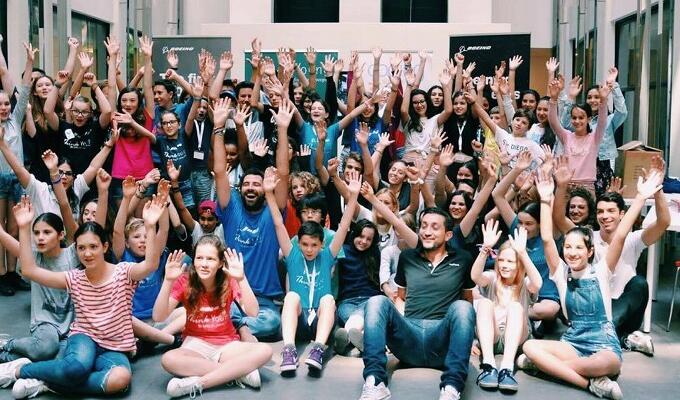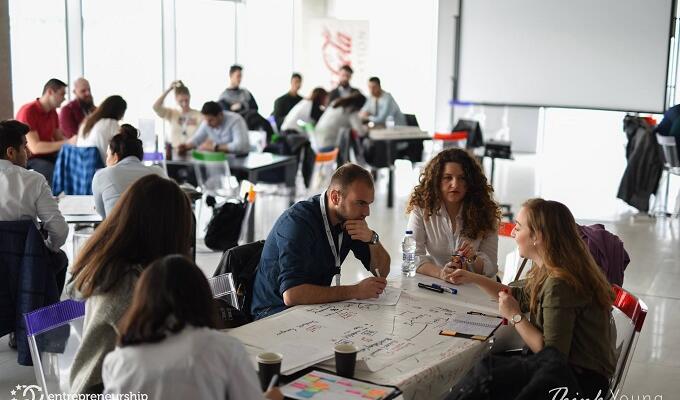



Building talent for the future
Closing the mistmatch between skills and demand is crucial as we enter a new, digital era
An influx of new technologies and digitization has transformed the way in which we work, socialize and lead our lives. This phenomenon is often referred to as the Fourth Industrial Revolution. Information and communication technology (ICT) has made significant change possible with respect to methods of production, consumption and global employment.
ICT has also become a development imperative without which countries are unable to compete in world market and make significant economic progress.
European Union (EU) policymakers have made bridging the digital divide a priority. That is a positive and necessary development because the expected skills shortage in the European IT sector is estimated at 500,000 workers by 2020, according to a 2015 Empirica study (Talent for Europe: Towards and Agenda for 2020 and Beyond).
The digital gap clearly highlights a global skills mismatch between the abilities young people are leaving higher education with and the skills the market is demanding. In an attempt to galvanize policymakers and other stakeholders towards addressing this issue, ThinkYoung conducted a pan-European study on science, technology, engineering and mathematics (STEM) skills mismatches in 2012. It found a strong cultural divide between young Europeans and employers, both in the definition and perception of the skills needed. This gap is a key contributor to overall youth unemployment.
The study’s key recommendation was to increase dialogue between employers and higher education institutions on balancing STEM skills with the needs of the labour market. The study clearly presented that 21st century skills are more prominent in non-STEM than STEM graduates, with the former demonstrating higher competencies in most of the seven skills investigated. These skills are innovation, creativity, critical thinking, problem solving, self-reliance, technical skills and effective communication.
The skills address in the survey are 21st century skills that have been defined as ‘the need to educate for new industry, commerce, technology and economic structures; the need for new social interaction and communication skills; the need for imagination, creativity and initiative; the need to learn and continue to learn throughout employment; the need to maintain national and cultural values; and the need to operate in an increasingly international and global environment’.
As we enter into the new digital economy, major industries continue to automate processes and ICT skills are becoming an essential tool in the toolbox of the future workforce. This situation resulted in net job losses in many traditional industries, particularly in the manufacturing sector. On the other hand the digital economy is creating significant jobs opportunities in ICT-related industries. However, there exists a shortage of labour with the relevant skills that can take advantage of a plethora of opportunities brought about by the new technologies, especially those more suited to young digital natives.
As most STEM education interventions take place once young people have already completed higher education, ThinkYoung believes in increasing the opportunities for young people starting at an early age. It has taken action and inspired teenagers to understand that coding and STEM skills are as important as writing and calculus. Those 21st century skills and new challenges in education are the key words characterizing ThinkYoung’s vision regarding its coding summer school. It provides students with a unique experience in innovative approaches in a non-formal educational settings, addressing the real needs of the youth of today and the skills required by the industry.
In addition to introducing the next generation to ICT skills, the Coding Summer School aims to promote an increase in the number of young girls who study STEM subjects. The School has a target of 70% girls to take part in each program. Aligning with the United Nations Sustainable Development Goals 4 (quality education) and Goal 8 (decent work and economic growth), Boeing, the US aircraft maker, and ThinkYoung, are jointly encouraging regulators to put STEM at the centre of the educational agenda.
A lot is yet to be done to ease the digital skills divide. However, with an ever-changing market and demand for workforce skills, ThinkYoung believes non-formal education is a key solution to address skills gaps as non-formal education can be mobile and be customized to the need of the market. It is a solution for today.



